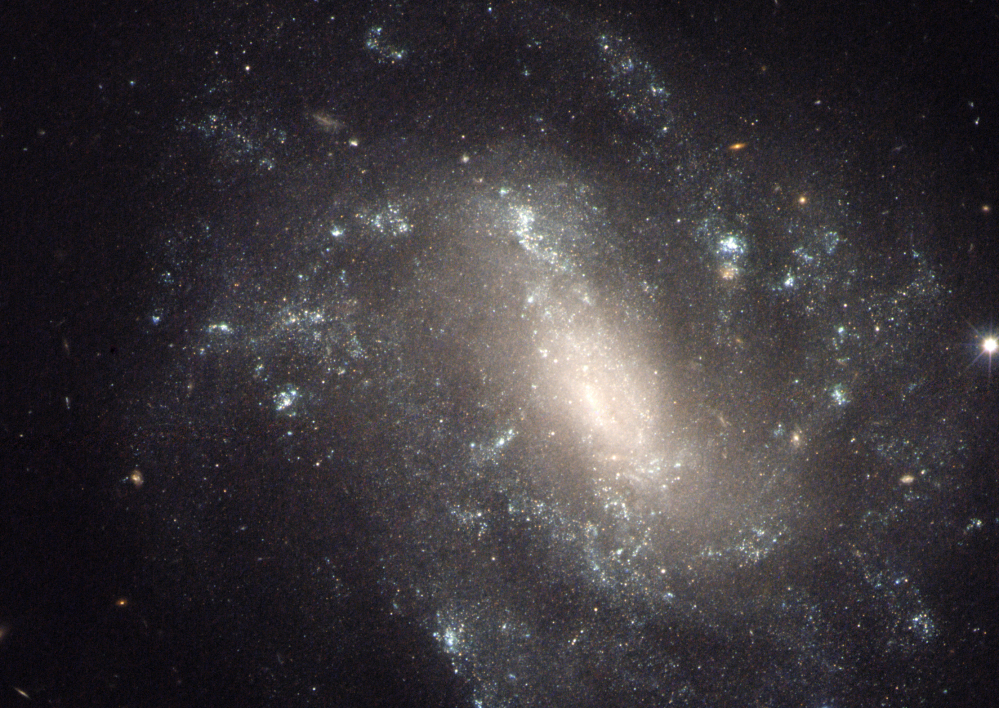WASHINGTON — Astronomers thought they had a handle on how the universe ticks, but the cosmos may be toying with them.
A team of astronomers has calculated that the universe seems to be expanding faster than what scientists had previously figured.
If the new research is right, then science’s basic understanding of what’s been happening to the universe in the past 13.8 billion years since the Big Bang could be just a bit off kilter.
Astronomers used the Hubble Space Telescope to measure the distance of 2,400 stars to calculate the rate the universe is expanding.
The number they came up with is 5 to 9 percent faster than other scientifically accepted measurements that calculate the expansion rate based on cosmic background radiation from 380,000 years after the Big Bang. The new study was released Thursday by NASA and is to be published in The Astrophysical Journal.
Either one set of calculations is wrong – which outside scientists say is the most likely possibility, though they can’t find something wrong yet – or the expansion rate has speeded up since 13.8 billion years ago. And if that’s the case, then our understanding of the universe is not quite right.
It’s as if we’re looking for someone and we’re in the right room, but looking at the wrong wall, said study lead author Adam Riess of the Space Telescope Science Institute, who won the 2011 Nobel in physics for proving in 1998 that the universe is accelerating. So now Riess and many of the same scientists are trying to figure just where astronomy made a wrong turn.
Riess and co-author Alex Filippenko of Berkeley said there are many possible explanations for why the universe is expanding faster now: It could be that there’s a mystery particle, what scientists call a sterile neutrino, which hasn’t been seen but could change calculations to make the cosmic calculations balance out. It could be that dark energy is increasing. It could be the universe is more curved than theorized. And it could be that Einstein’s General Relativity just isn’t quite right when we look at the whole universe.
Or it could be the measurements are off.
“There’s potentially something very exciting, very interesting that the data are trying to tell us about the universe,” Filippenko said.
Copy the Story LinkSend questions/comments to the editors.



Success. Please wait for the page to reload. If the page does not reload within 5 seconds, please refresh the page.
Enter your email and password to access comments.
Hi, to comment on stories you must . This profile is in addition to your subscription and website login.
Already have a commenting profile? .
Invalid username/password.
Please check your email to confirm and complete your registration.
Only subscribers are eligible to post comments. Please subscribe or login first for digital access. Here’s why.
Use the form below to reset your password. When you've submitted your account email, we will send an email with a reset code.